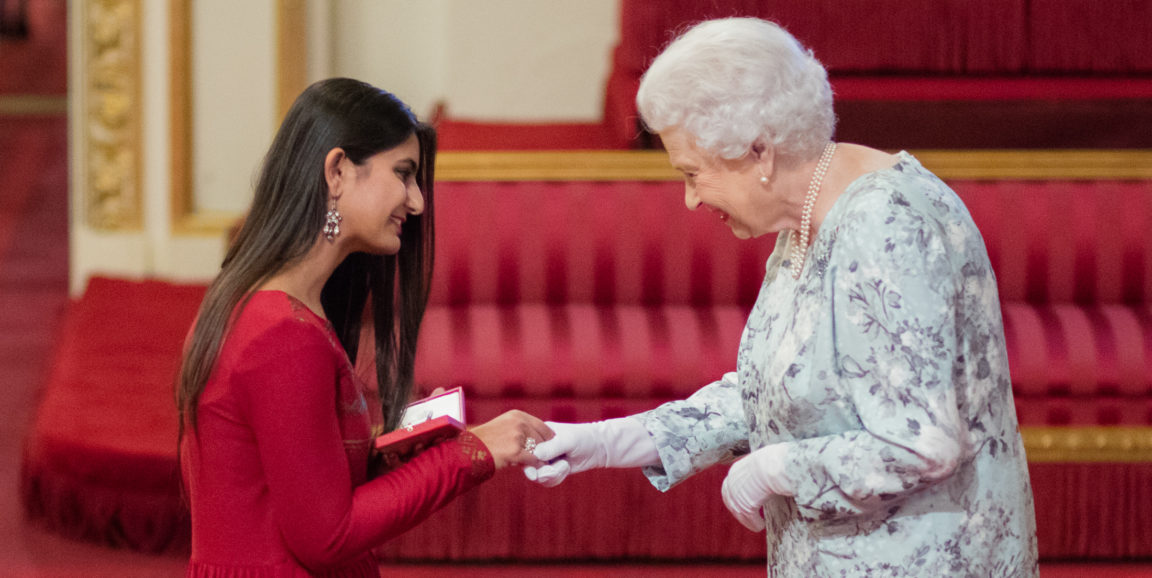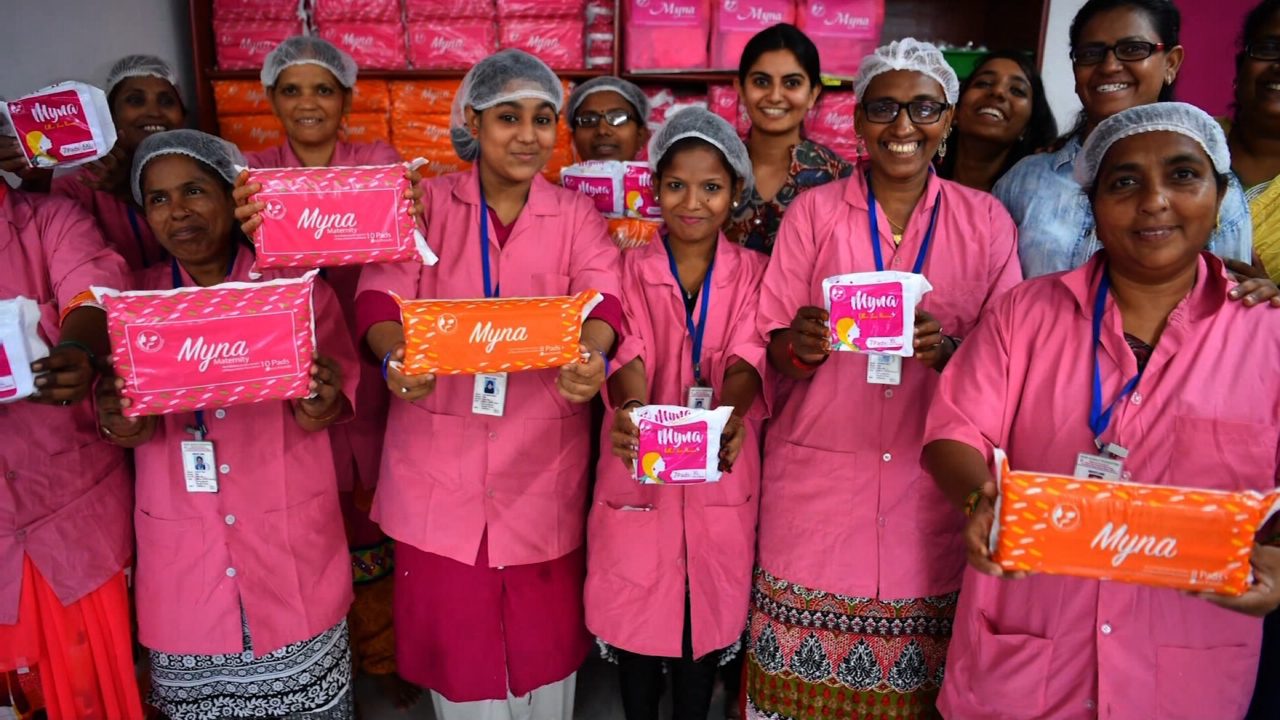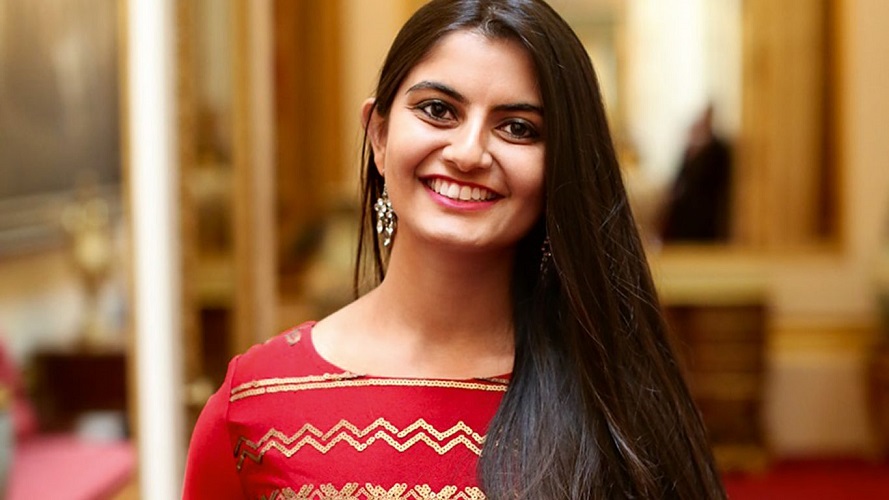Throughout the centuries, menstruation, as natural as it is, has always been so secretive that it never occurred to us that there was no actual reason for it to be this way and that is what Suhani Jalota fights for on a daily basis.
Table of Contents
Who is Suhani Jalota?
Suhani Jalota is a 24-year-old Indian activist who fights to improve public health in India but she mostly helps in fighting the stigma that surrounds menstruation in her country.
According to her interview with Stanford University, she claims that she comes from a « government family » meaning that both of her parents worked as civil servants. Her dad used to work on a water sanitation for the city while her mom still works nowadays in helping unprivileged young girls. As for Jalota’s grandparents, the latter informed Stanford that they used to work in the police.

After graduating from Duke University in North Carolina in 2016 ; Suhani received the Queen’s Young Leader award from Queen Elizabeth II and was named one of Asia’s 30 Under-30 Entrepreneurs by Forbes in 2018 thanks to her foundation Myna Mahila.
What is Myna Mahila?
Founded in 2015, Myna Mahila is an Indian foundation whom raises awareness around menstruation by providing affordable sanitary products to at least 10,000 women’s doorsteps in the slums of Mumbai, to prevent them from the embarrassment caused by the menstruation.
It was created by women for women
The foundation empowers women from the slums of Mumbai by employing them for a steady salary to manufacture low cost high quality sanitary products such as pads and maternity napkins. Not only does Myna Mahila help in breaking the cycle of poverty, but also offers classes called « health camp », to discuss about period and to teach women about menstrual hygiene, allowing many of them to freely discuss the topic without feeling discriminated.

Royal Wedding
Myna Mahila Foundation is one of the seven charities chosen by Meghan Markle and Prince Harry for their Royal wedding. Instead of traditional gifts, the couple asked their guests to donate to the seven different charities they had chosen, Myna Mahila being one of them.
What is Menstruation?
According to healthline.com, a menstrual period is vaginal bleeding that occurs at the end of the menstrual cycle. Each month, the female body prepares itself for a possible pregnancy. The uterus develops a thicker lining, and the ovaries release an egg that can be fertilized by sperm. If the egg isn’t fertilized, pregnancy won’t occur during that cycle. The body then sheds the built-up uterine lining. The result is a period, or menstruation.
What they don’t tell you is that it actually takes a very important and imposing place in a woman’s life. As a matter of fact, a woman will get between 150 and 450 periods in their life and most menstrual periods last from 3 to 8 days but it will usually last for about 5 days, depending on her Menstrual cycle which can vary from 21 to 36 days.

However, most of the women usually stop getting their period when they’re between the age 45 and 55 years old, this is called menopause. Although, as a young girl, you don’t necessarily understand all of this. The moment your period came, you probably thought that it was something bad such as a disease until someone took the time to explain it all to you leading you to progressively learn to live with it, by using sanitary products such as pads or tampons.
We asked a few girls about their first menstruation and how they handled it:
Carmen, a 19-year-old German sociology student:
« I wasn’t scared at all. My female family members (especially my mom) told me everything about it. So I was basically waiting for it to happen since all my close friends already had theirs. And when it happened I was not really surprised, it kind of was a mixture of happiness and curiousness. Happiness because in my culture (italian/armenian) you congratulate girls when they have their periods for the first time. Curiousness because I wondered if it was going to change, in terms of pain level and also if there was going to be other changes soon and how it is to grow into a woman. »
Rachel, a 13-year-old English middle school student:
« For me It started at the end of year 6 and I was kind of scared. We had already learnt about it but not so much on how to deal with it. My mum helped a lot with how to deal with it and explained properly what it is and I think I coped pretty well. The first few were kinda weird but you get used to it you know? »
Camille, a 20 year-old French Literature student:
« We are taught about it, whether it’s before or after it happens but I still got pretty scared because even though my mom had vaguely explained it to me before it actually happened, I felt weird. I was somehow scared because it meant growing up but I eventually managed. What made me feel better is to know that I wasn’t the only one in this case. I loved how at my school, girls were supportive towards each other. When one of the girls needed a pad, there was always lots of us to help founding one. »
To sum up, many of us have been accustomed to having a good hygiene at a very young age because we were taught so and had financial resources allowing us to take care of ourselves. However, periods aren’t considered nor talked enough in some developing countries. Something as natural as periods may seem normal to so many of us but we don’t realize how much of a struggle it actually is for other girls around the world.
The real cost(s) of period
The truth is that Menstruation can affect all aspects of a woman’s life, whether it’s in terms of education, health, economics or dignity.
We need to get over the stigma and culture that is associated with it for women to really take it on themselves and consider this a priority.
During her Ted Talk, Jalota claimed that the result of Indian women’s poor menstrual hygiene is not necessarily caused by the little financial resources of the families but by the stigma associated with menstruation.
In India, the menstruation topic is still very taboo and isn’t discussed enough for both young and adult women to be able to feel comfortable about their own bodies. Because of this stigma, sanitary products aren’t a priority for Indian women.
The young CEO and founder of Myna Mahila developed her argument by explaining that, while in menstruation, an Indian woman would never dare to step a foot out of her house to buy sanitary napkins due to the judgmental stares, she would receive for it.
She would either have to send a male member of her family to the nearby chemist for her or if they were unable to go, she would then have to go by herself with a piece of paper in hand, indicating what she needed, pads. All of this, for a pack of pads…
It is said that over the 355 Million menstruating Indian woman in the country, only 12% of them use sanitary products. As for the rest, they mostly do not have access to sanitary products and even if they did they wouldn’t know how to use them as they have very little knowledge concerning the matter.
Due to their lack of education and sanitary supplies, 23% of the Indian girls that are between 12-18 are forced to drop out of school out of shame and discomfort. Lastly, It is also believed that at least 1/3 girls in south Asia miss school over periods.
Not only do menstruation cost Indian women their pride and confidence but it also impacts on the young women’s education and their chances at having a more important and respected place in their society.
The outcome of a poor menstrual hygiene
Unsanitised cloth, ashes, dried leaves and even sand are often used by Indian women to curtailed the flow of blood caused by their period. However, those methods aren’t convenient and could lead to a development of bacterieas and yeasts.
It is primordial for women to have a good hygiene to avoid any risks of having a Urinary Tract Infection, Yeast Infections, Hepatitis B or even Cervical Cancer.
An equal knowledge
Health outcomes leads to increase attendance, productivity and equality in a society where we start to feel like we are equal.
Menstruation might only be experienced by women but believe it or not, boys and men have a role in the matter too. The lack of education they get, make them shape their own opinion on periods and the woman in general.
Educating them about menstruation would not only help young girls to be more confident but it would stop the already too persistent stigma, the embarrassment, the shame and bullying the girls have to go through on a daily basis due to the men’s misconceptions.
Every young and adult women should be allowed to feel comfortable in their own bodies. A better education would help girls to reach their full potential and prevent them from dropping out of school for something they can’t control.

Today, Suhani is on her pursuit of a PhD in health policy on the econ track at Stanford Medicine’s Department of Health Research and Policy.
———————————————————————
Follow Suhani Jalota on Twitter
Follow Suhani Jalota on Instagram
Donate
———————————————————————
Photos credits:
vogue.in, stanford.edu, cnn.com, pregnancyweekbyweekcalendar.com Sources:
- https://www.avogel.co.uk/health/periods/15-interesting-facts-about-your-period
- https://www.heydaycare.com/blog/importance-of-maintaining-good-hygiene-during-periods




